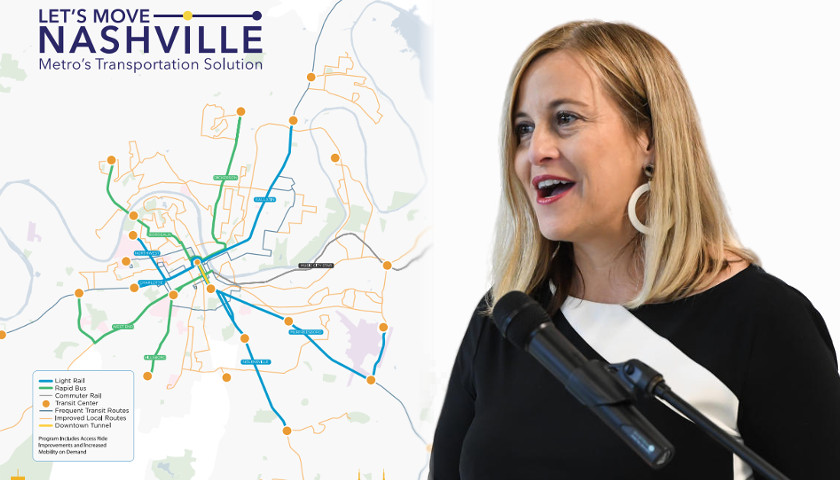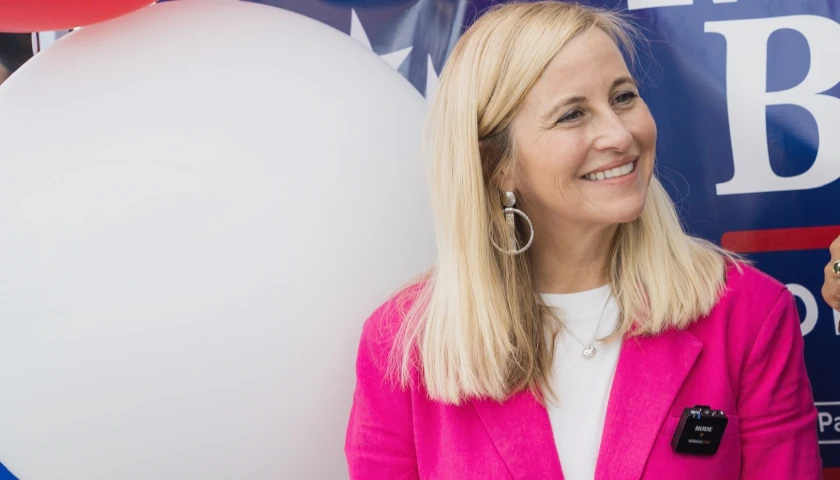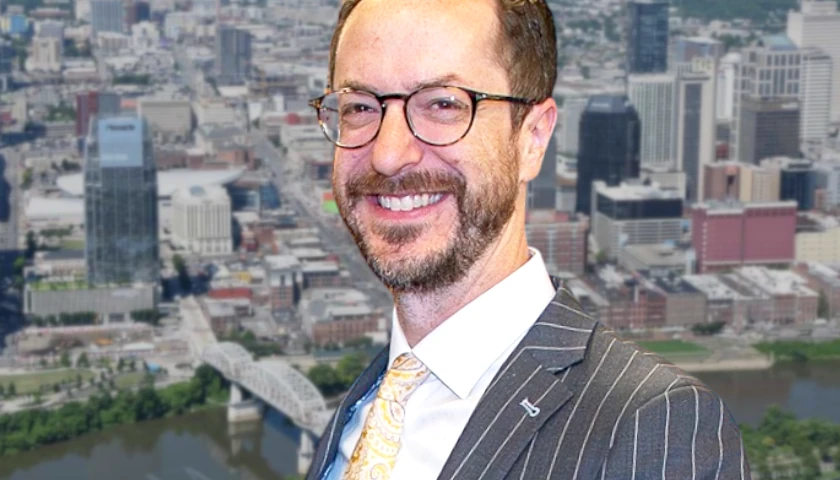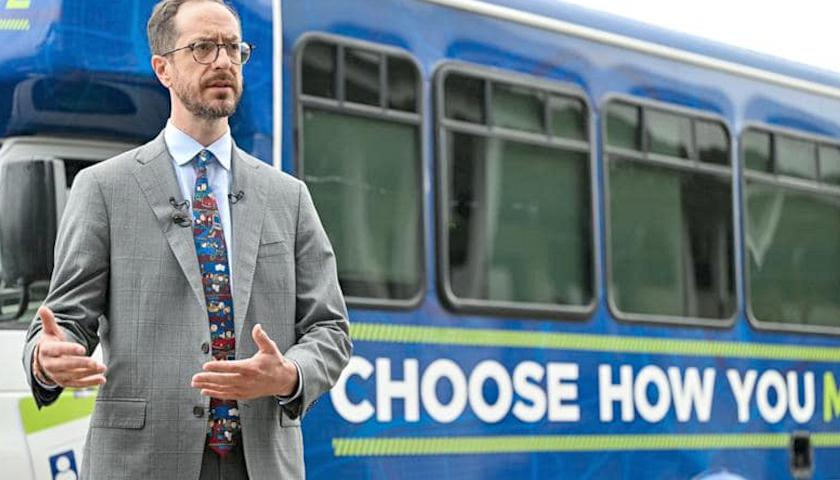Nashville Mayor Megan Barry released a detailed proposal Tuesday for a huge $5.2 billion mass transit project for the Nashville area that calls for four different types of tax increases.
Barry will ask Metro Council to schedule a referendum for May 2018 to ask voters to approve the plan, called “Let’s Move Nashville: Metro’s Transportation Solution.”
The mayor and her allies have been involved in efforts for some time to promote a tentative regional mass transit plan for Middle Tennessee they say would cost $6 billion. That plans for Metro Nashville alone now carry a $5.2 billion price tag reflects the ambitious nature of Barry’s vision, and will subject the progressive Democrat to even more criticism from those already skeptical of the project.
The project would include light rail and electric buses, as well as improvements to existing transportation. In recent weeks, Barry has come up with a controversial idea for an underground tunnel in downtown Nashville for trains and buses. The tunnel would cost more than $900 million, which has significantly added to the overall cost.
Barry presented her proposal at the Music City Center. The Nashville Tea Party later slammed her for saying during her speech that “there’s going to be a lot of questions after voters approve this.”
“Madam Mayor, with all due respect, your job is to answer all the questions voters have before they vote,” the Tea Party chapter said on its Facebook page.
Barry’s comment came as she was starting to wind down her speech. The full comment was, “There are still a lot of questions out there, I know, that need to be answered about the design of this system and there’s going to be a lot of questions after voters approve this.”
However, there will be multiple opportunities for voters to offer their input at forums across Davidson County in coming weeks before a referendum would be scheduled.
The Nashville Tea Party and other critics say mass transit is outdated in the age of Uber in which people are growing used to customized door-to-door transportation. They also say fewer people will be traveling downtown and to business centers because of more opportunities to work from home and various random locations.
The mass transit project would be funded with a combination of federal grants, bonds, fare revenues and tax surcharges. A half percent sales tax surcharge would start in July 2018, increasing to 1 percent in 2023. There also would be surcharges on the hotel/motel tax, local rental car tax, and business and excise tax.
The first light rail lines would open in 2026, with completion set for 2032. The existing Music City Star light rail would expand its service.
Plans also call for a fully electric bus fleet and improvements to the existing bus network, which would include greater frequency, route extensions and new crosstown routes, as well as enhanced passenger waiting shelters and support for on-board and in-station Wi-Fi.
Barry’s proposal calls for eliminating fares for Nashville residents living at or below the federal poverty level.
The Kraft CPA firm has been selected to independently review the financing plan and is set to complete its review in December. In January, Metro Council will begin considering the proposal. On Feb. 6, the council is scheduled to vote on a third reading on whether to put a referendum on the ballot May 1.
Public forums on the plans – called open houses – will start in areas along the proposed light rail corridors. The schedule includes:
Downtown Corridor: Nashville Farmers’ Market Food Court area – Thursday, October 26; 5:30 p.m. – 7:30 p.m.
Northwest Corridor: Tennessee State University, Elliott Hall – Thursday, November 2; 6:00 p.m. – 8:00 p.m.
Charlotte Avenue Corridor: Lentz Public Health Center, Centennial Rooms – Thursday, November 9; 6:00 p.m. – 8:00 p.m.
Murfreesboro Road Corridor: Trevecca, Tarter Student Activity Center – Tuesday, November 14; 6:00 p.m. – 8:00 p.m.
Nolensville Road Corridor: Coleman Park, Gym – Saturday, November 18; 12:00 p.m. – 2:00 p.m.
Gallatin Road Corridor: East Nashville Magnet High – Monday, November 20; 6:00 p.m. – 8:00 p.m.
Here are links for more information from Barry’s office:
More information about the plan and upcoming Community Open Houses
Let’s Move Nashville Map and Handout
Let’s Move Nashville Fact Sheet






[…] Formally released Oct. 17, Barry’s proposal came two years after the development of a tentative regional mass transit plan called nMotion, estimated to cost $6 billion. Barry’s proposal covers only Davidson County. At a cost of $5.2 billion, the plan reveals the enormity of what the mayor wants to do. In addition to light rail and improved and new bus service, Barry’s proposal calls for an underground tunnel downtown, which has significantly added to the cost of the Davidson County project. She’s asking Metro Council to put a referendum on the ballot in May to get needed funds through tax increases. […]
[…] Barry’s plan calls for a light rail system along five corridors, an underground tunnel downtown and upgraded buses. The project would be funded with federal grants, bonds, fare revenues and tax surcharges. Barry is asking Metro Council to place a referendum on the ballot in May to raise taxes. A half percent sales tax surcharge would start in July 2018, increasing to 1 percent in 2023. There also would be surcharges on the hotel/motel tax, local rental car tax, and business and excise tax. […]
Has Mayor Barry considered an “L” Train, with stops going all around Nashville, with stops throughout the busiest places of work, Bridgestone Arena, and Titan Stadium. The L could have trains outreaching all over from Murfreesboro, Lebanon, Mt. Juliet, Hermitage, Rivergate, Joelton, West Charlotte Pike, outside the 440 loop a few miles, and South Granny white Pk, Brentwood, and hook backup to the ‘Boro. Several stops on main street thoroughfares, and wind throughout the city. Charge with tokens like a normal Elevated train system as in Chicago, and save the cost of construction by the Millions, and the Tourists would love it, easy access with stairs at the stop stations, and elevators to be fair to wheelchairs customers. An Elevated track would save millions in construction.